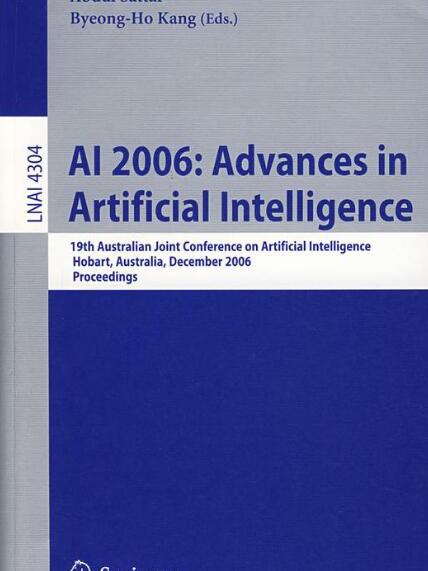詳細介紹
The LNAI series reports state-of-the-art results in artificial intelligence research, development, and education, at a high level and in both printed and electronic form. Enjoying tight cooperation with the R&D community, with numerous individuals, as well as with prestigious organizations and societies, LNAI has grown into the most comprehensive artificial intelligence research forum available.
The scope of LNAI spans the whole range of artificial intelligence and intelligent information processing including interdisciplinary topics in a variety of application fields. The type of material published traditionally includes proceedings (published in time for the respective conference) post-proceedings (consisting of thoroughly revised final full papers) research monographs (which may be based on PhD work)
圖書目錄
Invited Talks
What Can We Do with Graph-Structured Data? A Data Mining Perspective
Morphological Computation - Connecting Brain, Body, and Environment
Interaction-Oriented Programming: Concepts, Theories and Results on Commitment Protocols
Symmetry Breaking
PART I: Regular Papers
Foundations and Knowledge Based System
Heyting Domains for Constraint Abduction
Feedback in Multimodal Self-organizing Networks Enhances Perception of Corrupted Stimuli
Identification of Fuzzy Relation Model Using HFC-Based Parallel
Genetic Algorithms and Information Data Granulation
Evaluation of Incremental Knowledge Acquisition with Simulated Experts
Knowledge Representation and Reasoning Finite Domain Bounds Consistency Revisited
Speeding Up Weighted Constraint Satisfaction Using Redundant Modeling
Verification of Multi-agent Systems Via Bounded Model Checking
Logical Properties of Belief-Revision-Based Bargaining Solution
Knowledge Compilation for Belief Change
Design Methodologies of Fuzzy Set-Based Fuzzy Model Based on GAs and Information Granulation
A Defeasible Description Logic
Representation and Reasoning for Recursive Probability Models
Forgetting and Knowledge Update
Machine Learning
Enhanced Temporal Difference Learning Using Compiled Eligibility Traces
A Simple Artificial Immune System (SAIS) for Generating Classifier Systems
Selection for Feature Gene Subset in Microarray Expression Profiles
Based on an Improved Genetic Algorithm
An Efficient Alternative to SVM Based Recursive Feature
Elimination with Applications in Natural Language Processing and Bioinformatics
……
Connectionist AI
Data Mining
Intelligtnt Agents
Cognition and Ussr Interface
Vision and Image Processing
Natural Longuage Processing and Wicb Intellingenc
Netural Netwars
Search and Poding
Robofice
Al Applications
Author Index

